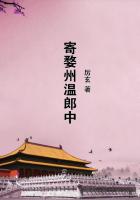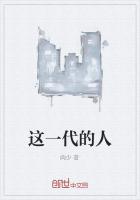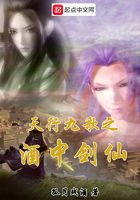But if you are not religious, and have to do things the hard way, then learn to relax by physical measures. Dr. David Harold Fink,who wrote Release from Nervous Tension, says that the best way to do this is to talk to your body. According to Dr. Fink, words are the key to all kinds of hypnosis; and when you consistently can' t sleep, it is because you have talked yourself into a case of insomnia. The way to undo this is to dehypnotize yourself—and you can do it by saying to the muscles of your body: "Let go, let go—loosen up and relax." We already know that the mind and nerves can' t relax while the muscles are tense—so if we want to go to sleep, we start with the muscles. Dr. Fink recommends—and it works out in practice—that we put a pillow under the knees to ease the tension on the legs, and that we tuck small pillows under the arms for the very same reason. Then, by telling the jaw to relax, the eyes, the arms, and the legs, we finally drop off to sleep before we know what has hit us. I' ve tried it—I know. If you have trouble sleeping, get hold of Dr. Fink' s book, Release from Nervous Tension, which I have mentioned earlier. It is the only book I know of that is both lively reading and a cure for insomnia5.
One of the best cures for insomnia is making yourself physically tired by gardening, swimming, tennis, golf, skiing, or by just plain physically exhausting work. That is what Theodore Dreiser did. When he was a struggling young author, he was worried about insomnia, so he got a job working as a section hand on the New York Central Railway; and after a day of driving spikes and shoveling gravel, he was so exhausted that he could hardly stay awake long enough to eat.
If we get tired enough, nature will force us to sleep even while we are walking. To illustrate, when I was thirteen years old, my father shipped a car-load of fat hogs to Saint Joe, Missouri. Since he got two free railroad passes, he took me along with him. Up until that time, I had never been in a town of more than four thousand. When I landed in Saint Joe—a city of sixty thousand—I was agog with excitement. I saw skyscrapers six storeys high and—wonder of wonders—I saw a street-car. I can close my eyes now and still see and hear that street-car. After the most thrilling and exciting day of my life, Father and I took a train back to Ravenwood, Missouri. Arriving there at two o' clock in the morning, we had to walk four miles home to the farm. I was so exhausted that I slept and dreamed as I walked. I have often slept while riding horseback. And I am alive to tell it!
When men are completely exhausted they sleep right through the thunder and horror and danger of war. Dr. Foster Kennedy, the famous neurologist, tells me that during the retreat of the Fifth British Army in 1918, he saw soldiers so exhausted that they felt on the ground where they were and fell into a sleep as sound as a coma. They didn' t even wake up when he raised their eyelids with his fingers. And he says he noticed that invariably the pupils of the eyes were rolled upward in the sockets. "After that," says Dr. Kennedy, "when I had trouble sleeping, I would practice rolling up my eyeballs into this position, and I found that in a few seconds I would begin to yawn and feel sleepy. It was an automatic reflex over which I had no control."
No man ever committed suicide by refusing to sleep and no one ever will. Nature would force a man to sleep in spite of all his will power. Nature will let us go without food or water far longer than she will let us go without sleep.
Speaking of suicide reminds me of a case that Dr. Henry C. Link describes in his book, The Rediscovery of Man. Dr. Link is vice-president of The Psychological Corporation and he interviews many people who are worried and depressed. In his chapter On Overcoming Fears and Worries, he tells about a patient who wanted to commit suicide. Dr. Link knew arguing would only make the matter worse, so he said to this man: "If you are going to commit suicide anyway, you might at least do it in a heroic fashion. Run around the block until you drop dead."
He tried it, not once but several times, and each time felt better, in his mind if not in his muscles. By the third night he had achieved what Dr. Link intended in the first place—he was so physically tired (and physically relaxed) that he slept like a log. Later he joined an athletic club and began to compete in competitive sports. Soon he was feeling so good he wanted to live for ever.
珍妮·麦当娜对我说:当她心情沮丧、闷闷不乐而无法入睡时,便会重复《圣歌》第二十二章中的内容,以获得一种“安全感”——“上帝是我们的牧师,我心无杂念。他让我躺在绿色的牧地上,带领我来到幽静的溪流旁。”
如果你不信奉宗教,很难解决一些问题的话,你可以通过物理措施来进行放松。大卫·哈罗·芬克博士曾经写过一本名叫《消除神经紧张》的书,上面说治疗失眠的最好方法就是与自己的身体交谈。按照芬克所说,语言是所有催眠方法的关键,你一直不能入睡,是因为你对自己说得太多,患上了失眠症。解决方法是你对着自己身上的肌肉说:“放松,放松——放松肌肉,放松。”我们都知道,在我们睡觉时,如果肌肉处于紧张状态的话,思想和神经也得不到放松,因此我们先要放松肌肉。芬克博士推荐的解决方法是:把一个枕头放在膝下,使所有的腿部肌肉得到放松,再在胳膊底下分别塞几个小枕头。然后,放松下颚、眼睛、胳膊和腿,最后我们就不知不觉地进入了梦乡。我曾经试过,很有效。如果你很难入睡,可以看看芬克博士的书——《消除神经紧张》,我认为这是一本可读性强,并适合治疗失眠的书。
另外一种治疗失眠症的捷径是参加体育锻炼,比如,园艺活动、游泳、打网球、打高尔夫球、滑雪等等,或是做一些消耗体力的工作。德莱塞就是这样做的。当德莱塞还是一个正在奋斗的年轻作家时,他总是为了失眠而焦虑不安,便在纽约中央铁路公司找了一份切割工的工作。经过一天的钉钉子和铲沙砾工作后,德莱塞感到极其疲惫,吃饭都很难坚持足够长的时间。















